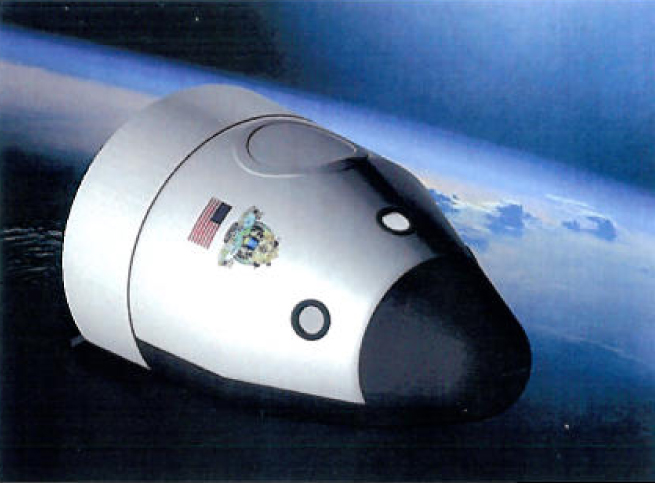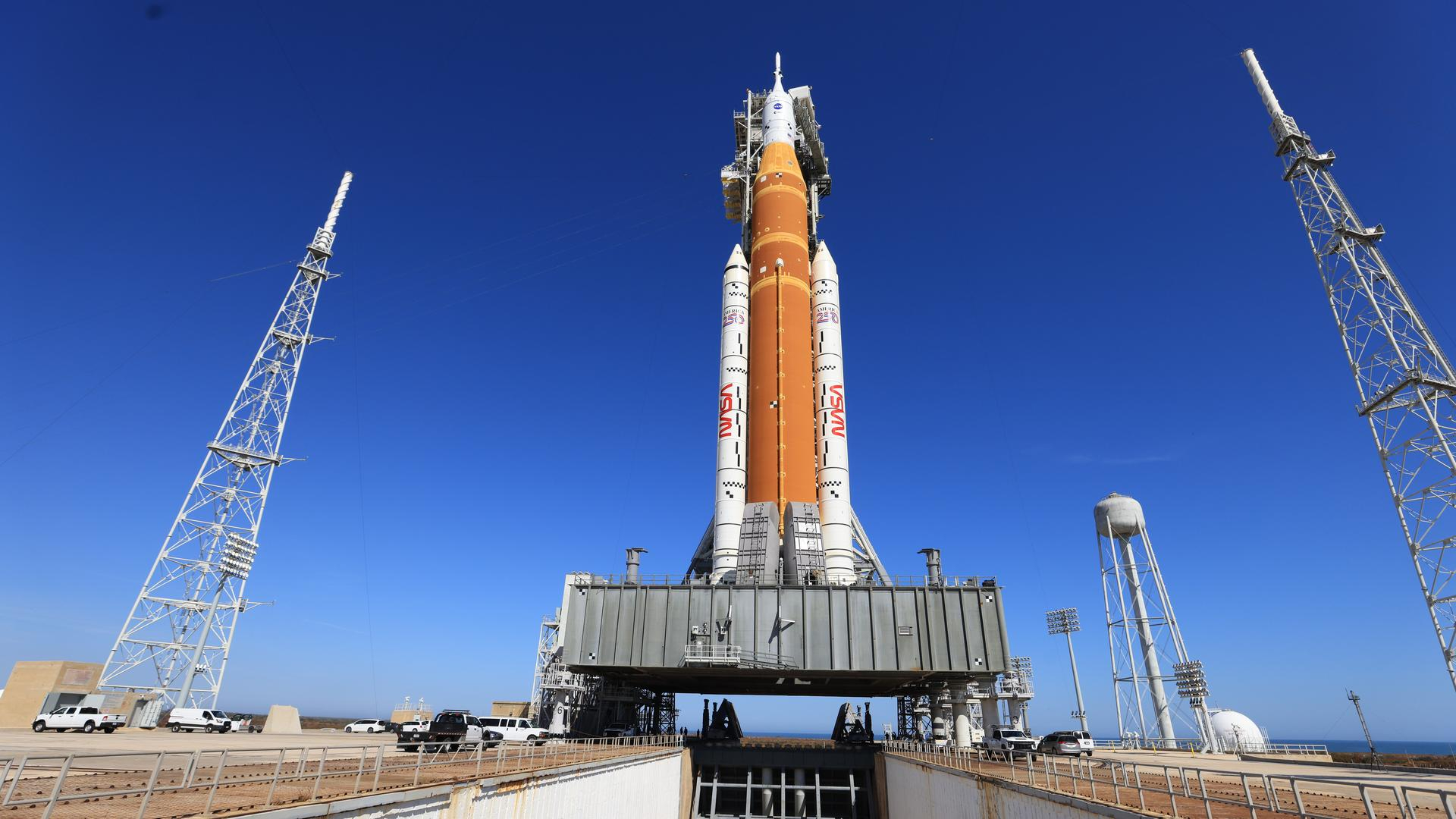Four Companies at Forefront of Commercial Space Race

Breaking space news, the latest updates on rocket launches, skywatching events and more!
You are now subscribed
Your newsletter sign-up was successful
Want to add more newsletters?

Delivered daily
Daily Newsletter
Breaking space news, the latest updates on rocket launches, skywatching events and more!

Once a month
Watch This Space
Sign up to our monthly entertainment newsletter to keep up with all our coverage of the latest sci-fi and space movies, tv shows, games and books.

Once a week
Night Sky This Week
Discover this week's must-see night sky events, moon phases, and stunning astrophotos. Sign up for our skywatching newsletter and explore the universe with us!

Twice a month
Strange New Words
Space.com's Sci-Fi Reader's Club. Read a sci-fi short story every month and join a virtual community of fellow science fiction fans!
CAPE CANAVERAL, Fla. -- On the eve of NASA's next-to-last space shuttle launch, the drive toward a new wave of space exploration surges forward.
Four private companies are the leaders in the effort to build commercial spaceships to carry astronauts to low-Earth orbit and the International Space Station after the space shuttles retire.
NASA recently handed out the second wave of contracts in its Commercial Crew Development program, which aims to spur creation of a private replacement for the space shuttles. The U.S. space agency hopes outsourcing travel to low-Earth orbit will free it to focus on building a rocket to carry astronauts to an asteroid and Mars.
The four contract winners are Blue Origin, Sierra Nevada, SpaceX and Boeing. [Top 10 Fantasy Spaceships Headed for Reality]
While the timeline is murky, officials say the earliest a commercial spacecraft would be ready to carry crews to orbit is around 2014-15.
The firms are at various stages of development; SpaceX is the only one that has flown its version of an orbital spacecraft on a test flight.
In December 2010, SpaceX launched its Dragon capsule atop its Falcon 9 rocket to orbit, and then safely retrieved the capsule from the ocean after landing. It was the first time a commercial company had ever achieved such a feat. [INFOGRAPHIC: Inside Look at SpaceX's Dragon Capsule]
Breaking space news, the latest updates on rocket launches, skywatching events and more!
"We're very proud of that and basically we're taking it to the next level," Garrett Reisman, SpaceX Commercial Crew Development program manager, said during a NASA press conference today (April 28).
Boeing is developing a capsule called the Crew Space Transportation-100 (CST-100), which would be compatible to fly atop various rockets, including SpaceX's Falcon 9 and United Launch Alliance's Atlas and Delta boosters.
"We're focusing on keeping it simple," said John Elbon, vice president and program manager of Commercial Crew Development at Boeing. "Having a simple system makes it safe and reliable and helps to keep operational costs low."
Sierra Nevada is building a space plane called Dream Chaser that would launch atop an Atlas rocket like a capsule but glide down for landing like a plane or the space shuttle.
"Our vehicles have been in design and testing now for over 12 years," said Mark Sirangelo, executive vice president and chairman of Sierra Nevada.
Rounding up the group is Blue Origin, a company founded in 2000 by Amazon.com founder Jeff Bezos.
"We're committed to developing safe and affordable commercial human spaceflight," said Rob Meyerson, Blue Origin project manager.
Blue Origin is the most secretive of the space companies, keeping specifics of its spacecraft and timeline under wraps
When asked when the company's first orbital spaceflights may occur, Meyerson said, "I'm not prepared to release those dates."
He said the company will become more open once it makes progress toward flying spacecraft. "As Blue Origin has more accomplishments and meets our milestones, we're going to be sharing more information with the public."
The four companies are hoping NASA won't be the only customer looking to buy passage aboard their orbital spacecraft. They intend to sell seats to space tourists as well as to astronauts from countries without their own space vehicles.
Elbon said he absolutely believed the market for orbital space travel is there.
"Customers will be picking based on price, and I believe there's a market for multiple suppliers on orbit, as long as the price is competitive."
You can follow SPACE.com senior writer Clara Moskowitz on Twitter @ClaraMoskowitz. Follow SPACE.com for the latest in space science and exploration news on Twitter @Spacedotcom and on Facebook.

Clara Moskowitz is a science and space writer who joined the Space.com team in 2008 and served as Assistant Managing Editor from 2011 to 2013. Clara has a bachelor's degree in astronomy and physics from Wesleyan University, and a graduate certificate in science writing from the University of California, Santa Cruz. She covers everything from astronomy to human spaceflight and once aced a NASTAR suborbital spaceflight training program for space missions. Clara is currently Associate Editor of Scientific American. To see her latest project is, follow Clara on Twitter.
